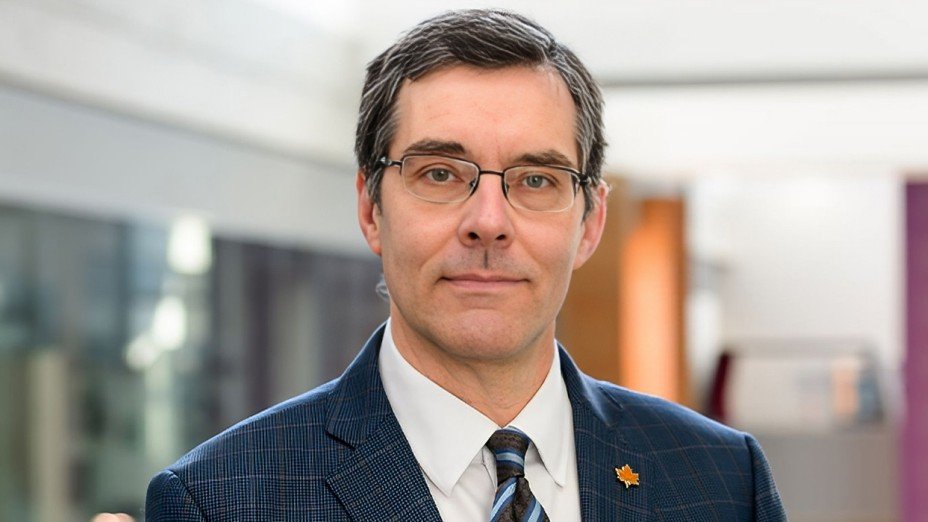Amidst the ongoing riots in the United Kingdom, Pro-Vice-Chancellor (International) Steven McGuire of the University of East Anglia (UEA), UK, assured that the country is still a safe destination for international students. In an exclusive interview with The Free Press Journal, McGuire shared his views on the challenges and opportunities for Indian students in the UK. He also talked about the growing attraction of the UK as a study destination. Here are the excerpts from the interview:
FPJ: Can you share some insight on the educational landscape for international students in the UK?
McGuire: The UK educational landscape is highly international. British universities have become much more welcoming and better equipped to support international students over the past two decades. There is a strong focus on employability, with many programs incorporating work-experience or industry projects. The UK government has shown commitment to attracting international students, as evidenced by the graduate route visa. However, the landscape is competitive, and we’re always working to enhance our offerings to remain an attractive destination for international students.
FPJ: How would the ongoing riots and protests affect the UK’s ability to attract and retain international students?
McGuire: Any form of social unrest can potentially impact a country’s ability to attract international students. However, the UK has a long history of being a safe and welcoming destination for international students. At the UEA, we prioritise student safety and well-being. In the event of any unrest, we would work closely with local authorities and provide additional support to our international student community to ensure their safety and address any concerns.
FPJ: Is the graduate route visa crucial for UK Universities to compete with other countries offering post-study work visas?
McGuire: The graduate route visa is indeed crucial for UK universities to remain competitive globally. Many countries offer post-study work opportunities, and this visa allows the UK to offer a comparable option. It is particularly important for students who want to gain international work-experience after their studies, which can be a significant factor in their choice of study destination. At the UEA, we advocate for it by ensuring our students are well-informed about this visa by highlighting its benefits in our communications with prospective students.
NGO Steps Up To Support Indian Students In UK Amid Unrest
FPJ: Will the recent visa restrictions in Canada and Australia benefit the UK in attracting more Indian students?
McGuire: While changes in other countries’ visa policies can influence student choices, we prefer to focus on our strengths rather than potential difficulties elsewhere. The UK provides high-quality education, strong employability outcomes, and a welcoming environment for international students. These factors, combined with our current visa policies, make the UK an attractive destination regardless of other countries’ policies.
FPJ: Why are more Indian students choosing the UK?
McGuire: The UK has become increasingly attractive to Indian students due to several factors. Our universities have a strong international focus, with diverse student bodies and staff. The two-year post-study work visa (graduate route) is a significant draw. Additionally, the UK offers high-quality education, strong employability outcomes, and a rich cultural experience. The shared language and historical ties between India and the UK also play a role in making the UK an appealing destination.
FPJ: What challenges do Indian students face in the UK, and how do universities support them?
McGuire: All international students face one common problem: that is of acclimatisation. At the UEA, we have support systems in place, including dedicated course directors for large international cohorts, student academic advisors, and welfare support. We encourage all students to join clubs and get involved in university life to build a support network. We are always looking to improve our support, so we welcome feedback from students from different regions to address any specific needs they might have.
FPJ: How will India’s new higher education guidelines affect UK study choices?
McGuire: India’s new higher education guidelines are likely to influence UK study choices for Indian students. These guidelines emphasise on holistic education, research excellence, inclusivity, and technological integration. At the UEA, we see this as an opportunity to align our offerings more closely with these goals. The guidelines’ focus on internationalisation could potentially increase interest in studying abroad.
UK Riots: ‘Chaos, Fear’ Grip Indian Students As Violent Anti-Immigrant Protests Snowball
FPJ: What are the most popular programmes among Indian students?
McGuire: Indian students in the UK often gravitate toward STEM fields, business and management studies, and programs with robust industry connections. At the UEA, we have seen significant interest in our engineering programs, particularly in cutting-edge areas like mobile telephony, as well as our globally recognised environmental and climate science courses.
FPJ: What are the scholarships and financial aid programmes that the UEA provides to Indian students?
McGuire: As part of our commitment to fostering global talent, the UEA is offering several scholarships for Indian students in the academic year 2024-2025. We are pleased to provide the UEA India Award, offering up to £10,000 to outstanding postgraduate students across various disciplines. For undergraduate students, we offer the UEA India Undergraduate Scholarship, providing a £4,000 reduction in first-year tuition fees, and the Global Undergraduate Excellence Scholarship, which offers up to £10,000 annually.
Additionally, the Sonny and Gita Mehta India Scholarship supports talented Indian writers in our Literature, Drama, and Creative Writing department, valued at £28,500. For those pursuing an MSc in Global Plant Health, the David Sainsbury Full MSc Scholarship covers full tuition fees, a maintenance grant, and travel expenses.



